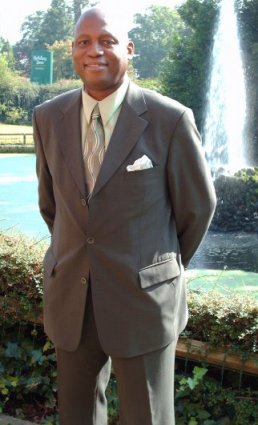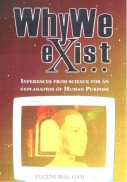The Author

"We are living in an era of growing uncertainty and insecurity that is
challenging all our beliefs and assumptions. In these troubled times it
is crucial that we acquire some understanding of just who we are as a
species, why we exist and how best we may order our lives and societies
within the universal scheme of things."
- Eugene D. A. Bell-Gam
**Latest Comments, Essays & Letters**
(click to read)
@ Read the Preface
@ Digest Reviews
@ Enjoy the Excerpts
@ Discuss the Book
@ Spread the Word
@ Where to Buy
@ News & Articles
@ Author Profile
@ Contact Us
Thank you for your support !
|
More Quotes
|
On the need for open thinking in science...
"Much advance, both in biological evolution and in psychosocial
evolution, including advance in science, is of course obtained by
adding minute particulars, but at intervals something like
crystallization from a supersaturated solution occurs, as when science
arrives at an entirely new concept, which then unifies an enormous
amount of factual data and ideas, as with Newton or Darwin."
- Sir Julian Huxley, Scientist and Humanist
"Science thrives on alternative explanations, which must be equally
subject to observational and experimental testing ... Scientists,
like everyone, get their egos wrapped up in their work. They believe
passionately in their own ideas, even if they are supposed to be calm,
cool, dispassionate, and able to evaluate all possibilities evenly."
- Niles Eldredge, Macro-evolutionist
"Scientists are as human as anyone else. Consequently the literature on
these topics suffers from a profusion of statements unsupported by
evidence and from unspoken and largely untested assumptions. The canons
of scientific rigor are often not applied at all to the profoundly
important questions of human biology."
- Douglas J. Futuyma, State University of New York
On Design vs Chance ...
"A common sense interpretation of the facts suggest that a
superintellect has monkeyed with the physics, as well as with chemistry
and biology, and that there are no blind forces worth speaking about in
nature. The numbers (i.e., probabilities) one calculates from the facts
seem to me so overwhelming as to put this conclusion almost beyond
question." - Sir Fred Hoyle, Astrophysicist
"The laws of science, as we know them at present, contain many
fundamental numbers, like the size of the electric charge of the
electron and the ratio of the masses of the proton and electron. ...
The remarkable fact is that the values of these numbers seem to have
been very finely adjusted to make possible the development of life."
- Stephen Hawking, Physicist and Philosopher
"When you read or hear anything about the birth of the universe,
someone is making it up. We are in the realm of philosophy. Only God
knows what happened at the very beginning (and so far he/she hasn't let
on)." - Leon Lederman, Theoretical Physicist
"Scientists have no choice but to consider evolution a fact... it
cannot be upset without discarding all of modern biology, biochemistry,
geology, astronomy - in short, without discarding all of science."
- Isaac Asimov, Biochemist and philosopher
"However, whilst this [natural selection] is a mechanism of evolution,
it is, as Darwin himself recognised, not the only one. It is good at
explaining how species get better at doing their species thing, but bad
at explaining how new species emerge. For this one needs other factors,
like founder effects ... No assembly of genes can produce a human with wings
to fly ... because you can't build a flesh, muscle and bone structure capable of
providing enough lift."
Prof. Steven Rose, Open University
On the nature of human consciousness ...
"To explain experience, we need a new approach. The usual explanatory
methods of cognitive science and neuroscience do not suffice. … To
account for conscious experience, we need an extra ingredient in the
explanation. This makes for a challenge to those who are serious about
the hard problem of consciousness: What is your extra ingredient, and
why should that account for conscious experience?"
- David J. Chalmers, Cognitive Scientist and Philosopher
"... the important point about the standard evolutionary story is that
the human species and all of its features are the wholly physical
outcome of a purely physical process. ... We are notable only in that
our nervous system is more complex and powerful than those of our
fellow creatures. ... We are creatures of matter. And we should learn
to live with that fact. ... There is no metaphysical gap to be
bridged."
- Paul Churchland, Cognitive Scientist and Philosopher
"We exist as material beings in a material world, all of whose
phenomena are the consequences of material relations among material
entities."
- Prof. Richard Lewontin, Geneticist
"In response to a variety of biotechnologies, law and public opinion in
liberal democracies will be forced to make explicit that the rights of
a living thing are determined by its level of consciousness ...
technology will force three clarifications about the value of
consciousness, at the beginning, the end and boundaries of human life."
- Dr. James Hughes, Bio-ethicist
" .. at the present state of our investigation of consciousness .. we
don't know how it works and we need to try all kinds of different
ideas."
- Prof. John Searle, Philosopher
On problems with medical definitions of death ...
"It is our own conviction that the whole brain death standard probably
best balances the conflicting needs within our society, despite the
confusion it generates. This is based largely on utilitarian
considerations." -
- Prof. Jeffrey R. Botkin (Pediatrician & Medical Ethicist),
Prof. Stephen G. Post (Philosopher & Bioethicist)
"Our results show that medical factors cannot account for the
occurrence of NDE [near-death experience]. All patients had a cardiac arrest, and were
clinically dead with unconsciousness resulting from insufficient blood
supply to the brain. ... According to the theory that NDE
is caused by anoxia, all patients in our study should have had an NDE,
but only 18% reported having an NDE..."
- Dr. Pim van Lommel, Cardiologist
On morality outside religion ...
"I shall argue that a predominant quality to be expected in a
successful gene is ruthless selfishness.... Be warned that if you wish,
as I do, to build a society in which individuals co-operate generously
and unselfishly towards a common good, you can expect little help from
biological nature. Let us try to teach generosity and altruism, because
we are born selfish."
- Prof. Richard Dawkins, Philosopher and Atheist
"Today the god hypothesis has ceased to be scientifically tenable [...]
and its abandonment often brings a deep sense of relief. Many people
assert that this abandonment of the god hypothesis means the
abandonment of all religion and all moral sanctions. This is simply not
true. But it does mean, once our relief at jettisoning an outdated
piece of ideological furniture is over, that we must construct some
thing to take its place."
- Sir Julian Huxley, Scientist and Humanist
"Science has been charged with undermining morality, but the charge is unjust.
A man's ethical behavior should be based effectually on sympathy, education,
and social ties and needs; no religious basis is necessary. Man would indeed be in
a poor way if he had to be restrained by fear of punishment and hope of
reward after death."
- Albert Einstein, Scientist and Humanist
"By making good choices, doing the right thing, we thicken the stack of
universes in which versions of us live reasonable lives … When you
succeed, all the copies of you who made the same decision succeed too.
What you do for the better increases the portion of the multiverse
where good things happen."
- Prof. David Deutsch, Physicist and Philosopher
[Read more ... get the book]
|
|
|
The Book

Pen Press, London
ISBN: 1-904018-86-6
Buy it now!
BOOK CONTENTS
Preface
1. INTRODUCTION
Timeless Questions,
Shifting Answers
Crisis and Contradiction
Conflicting Indoctrination
Importance of the Debate
2. RELIGION ON ORIGIN
What is Religion?
Early Accounts of Origin
Creation Science
Common Ground with Science
3. SCIENCE ON ORIGIN
PART 1: THE UNIVERSE
What do we mean by Science?
Astronomy
Cosmology
Big-Bang Theory
Problems with Big-Bang
More Missing Pieces
Where is it all heading?
Common Ground with Religion
4. SCIENCE ON ORIGIN
PART 2: LIFE
Evolution
Darwinism
Impact of Modern Genetics
Problems with Evolution
Evolution, Religion & Social Science
What Next?
5. FOCUSING ON PURPOSE
Why restrict Inquiry?
Is it all a futile exercise?
Modern Design Science
Wrong Assumptions
6. THE SOLAR LABORATORY THEORY
An Expendable Experiment
Recording Mechanisms - Memory
Timing Mechanisms
Sleep
Dreaming
Memory Consolidation and Storage
Memory Retrieval
Consciousness and The Mind-Brain
Death
Quantum Unreality
Influencing Mechanisms
7. IMPLICATIONS OF THE THEORY
The Role of Free Will
The Good-Evil Paradox
Morality and Religion
The Problem with Religion
Morality outside Religion
Chances of Intervention
False Security
8. DEVELOPMENTS
9. FURTHER READING
|



